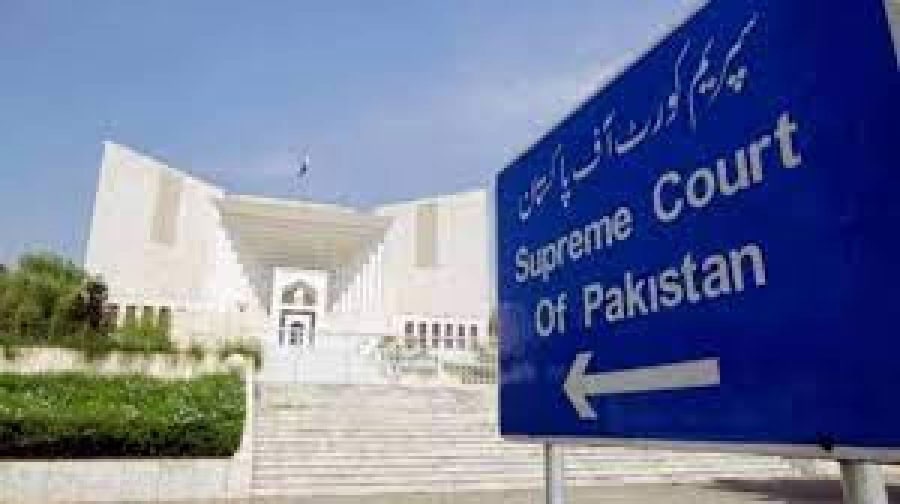ISLAMABAD – Justice Musarrat Hilali of the Supreme Court remarked that the trial of the civilians is being held by expanding powers.
“If a civilian disputes a checkpoint, where will the trial take place,” asked the judge during the hearing of the case related to the military courts fixed for hearing before a SC constitutional bench on Tuesday. Justice Aminud Khan was heading the bench.
Justice Muhammad Ali Mazhar remarked that the Army Act specifies which crimes are subject to its application.
Justice Musarrat Hilali said that the civilians are being tried by expanding powers, and the question is whether a civilian trial can take place or not.
The top court postponed the hearing of cases including election rigging without proceedings.
At the outset of the proceedings, the head of the bench, Justice Ameen-ud-Din Khan, observed that the Constitutional Bench would hear only the military courts case today.
When the Supreme Court started hearing the military courts case, the lawyer for the Ministry of Defence, Khawaja Haris, came forward and argued that the Supreme Court had previously ruled that civilians could be court-martialed by the military courts.
Justice Jamal Mandokhel asked who the affected party and the appellant were in the present case. Khawaja Haris responded that the appeal was filed by the Ministry of Defence.
Justice Jamal Mandokhel remarked that the Ministry of Defence is an executive institution; if there is a crime against the executive, can it judge itself? The division of powers in the Constitution is very clear.
Justice Jamal Mandokhel further observed that the Constitution is clear that the executive cannot perform the judiciary’s role, and this is the fundamental constitutional question in the military courts case.
Khawaja Haris argued that the executive can make a decision if no other forum is available. Justice Jamal Mandokhel replied that there is a forum for terrorism cases under the Anti-Terrorism Courts law, and with a legal forum available, how can the executive act as the judge?
Justice Jamal Mandokhel pointed out that the Army Act is limited to members of the armed forces. Khawaja Haris countered, saying that the Army Act is not limited to the armed forces; it includes various other categories, and he would address that point later.
Justice Jamal Mandokhel reiterated that the Army Act is specifically for the armed forces, under Article 8(3) of the Constitution, which deals with the discipline and performance of the armed forces. He asked if a criminal matter could be included under Article 8(3), noting that the Constitution mentions citizens, not civilians.
Khawaja Haris argued that the people of the Pakistan Armed Forces are as much citizens as others, and Article 175 does not apply to military court trials.
Justice Jamal Khan Mandokhel remarked that the Army Act was introduced to bring the armed forces under military discipline. Khawaja Haris added that if a civilian joins the armed forces, they cannot challenge matters in civilian courts under their fundamental rights.
Justice Jamal Khan Mandokhel noted that martial law had been in effect in Pakistan for 14 years. The Ministry of Defence lawyer argued that when a civilian interferes in the performance of armed forces duties, the Army Act applies.
Justice Jamal Khan Mandokhel commented that if a civilian attempts to enter a checkpoint, would that be considered interference in the armed forces’ duties? Your arguments are becoming so broad that everyone might be included.
Justice Muhammad Ali Mazhar stated that the case has two parts: one concerning declaring sections of the Army Act unconstitutional, and the second part concerning the trial of civilians in military courts.
Meanwhile, the Supreme Court postponed the hearing of the case related to civilian trials in military courts until tomorrow. Justice Ameen-ud-Din Khan said that tomorrow, the bench will only hear the military courts case, and no other cases will be heard. The rest of the Constitutional Bench’s cause list for tomorrow has been canceled.
At the end of the hearing, Hafeezullah Niazi, the father of Hussian Niazi (the nephew of Imran Khan, who was sentenced by a military court), approached the rostrum and said the court had shown kindness, after which the military courts delivered their verdicts. The 22 individuals convicted in Lahore are being held in a high-security zone and are not receiving rights as per the jail manual.
Justice Muhammad Ali Mazhar asked why these convicted individuals, not under trial, are not being granted rights under the jail manual.
The SC then directed the Punjab government to respond regarding the denial of rights under the jail manual.
Hafeezullah Niazi submitted that although sentences of two or ten years had been passed, detailed reasons were not provided. Justice Musarrat Hilali asked if the detailed reasons had not been given.
During this, Justice Muhammad Ali Mazhar conversed with Hafeezullah Niazi, asking him to present his arguments on this issue during his turn










